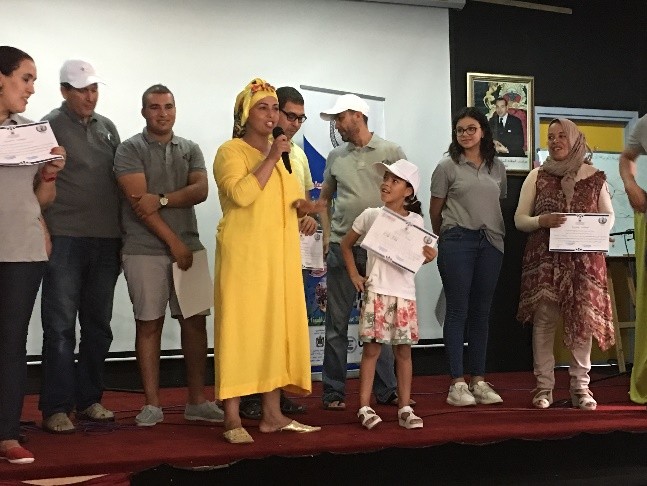Speeches Shim

January 2018—Seven-year-old Malak* could barely write her own name in Arabic last year. She has already had to repeat first grade before moving on to second at her elementary school in Morocco’s small coastal town of Temara. According to her mother Naima, Malak struggles with a learning disability.
Teachers would often put her in the back of the room so they could focus on students who were able to follow along with the lessons.
In August 2017, Malak was one of 520 young readers who took part in a USAID-supported summer reading program implemented in partnership with 10 different associations across Morocco.
As part of the program, students like Malak engaged in interactive games that boosted their reading skills as well as their confidence. The activities took place in schools, parks and community centers, which raised awareness of the importance of early grade reading and encouraged students’ families and the greater community to get involved.
“My daughter’s reading and writing problems prevented her from reading and liking to read. They even prevented her from going to school,” said Naima. “I would watch her give up … until the summer reading program made it possible for my daughter to not only improve her reading and writing abilities, but to gain confidence in herself. By giving hope to my daughter, this program gave me hope and strength to not give up on her.”
The program aimed to reduce summer learning loss by inviting early grade learners to continue practicing their reading skills during the long summer months. The program promoted phonics-based reading instruction through interactive activities and games.
Since 2015, USAID’s three-year Reading for Success–Small Scale Experimentation (RFS-SSE) program has been implemented in partnership with the Moroccan Ministry of National Education, Vocational Training, Higher Education, and Scientific Research in four regions and eight delegations across Morocco. More than 400 teachers have been trained on the new reading approach, reaching approximately 12,000 students. Based on the positive results, USAID is continuing to support the ministry to expand this approach nationwide through the five-year Reading for Success–National Program for Reading, which was launched at the beginning of the 2017 school year. This activity aims to take the lessons learned and models developed during the experimental phase to develop a new Arabic language curriculum for grades one through four to enhance Moroccan students’ reading and writing skills in Arabic.
*Full name withheld to protect identity.
LINKS
Follow @usaidmorocco, on Facebook, on Flickr, on YouTube

Comment
Make a general inquiry or suggest an improvement.